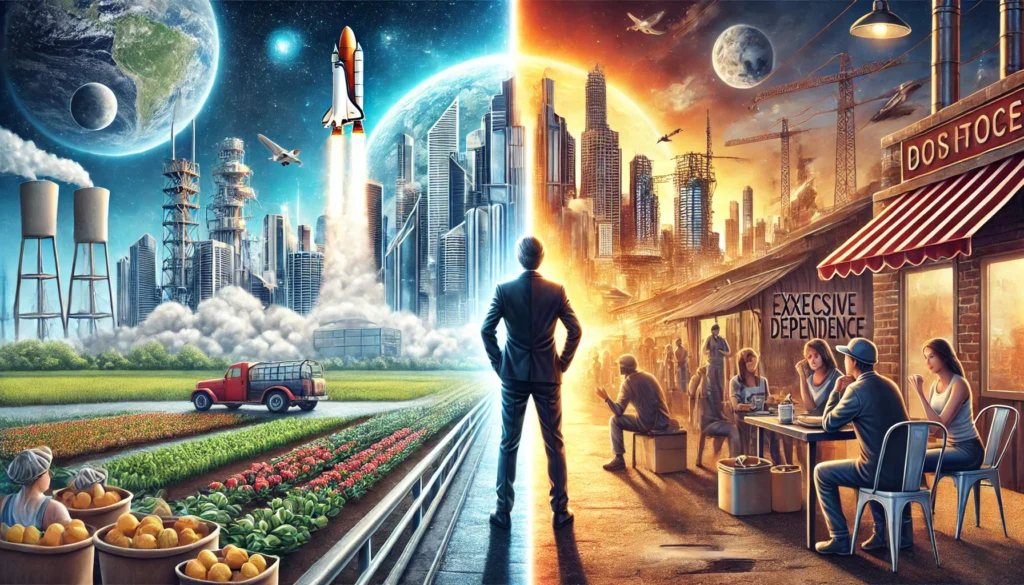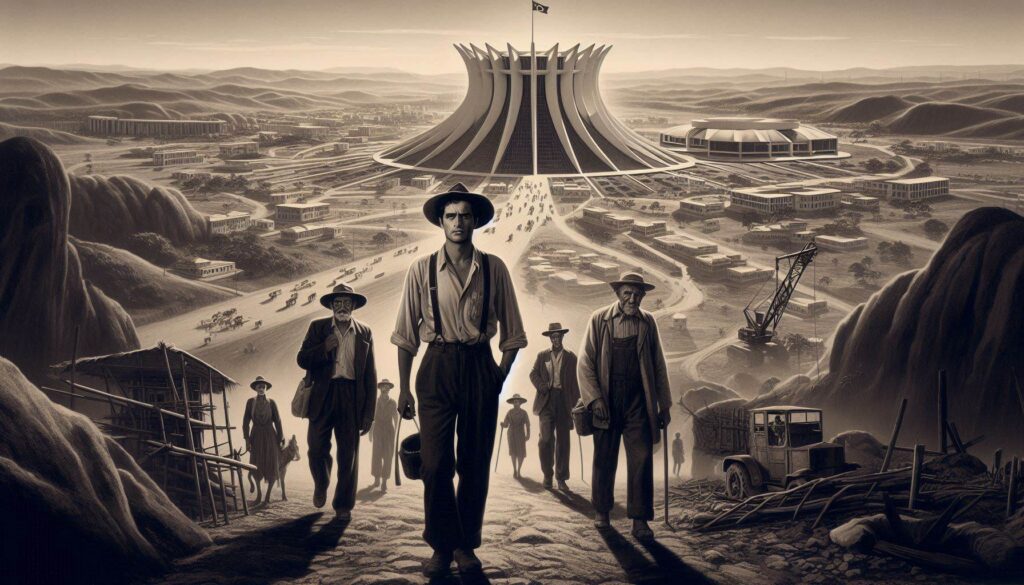Gil DePaula
Throughout history, humanity has always been driven by visionary minds capable of seeing beyond the obvious and breaking through seemingly insurmountable barriers. Men like Elon Musk embody this spirit of innovation and progress, while others, like Luiz Inácio Lula da Silva, represent stagnation, clientelism, and the perpetuation of economic and social mediocrity.
Elon Musk is one of the greatest exponents of innovation in the 21st century. His leadership in companies such as Tesla, SpaceX, Neuralink, and Starlink demonstrates an unwavering commitment to advancing humanity. He is not content with merely improving existing processes but seeks to revolutionize entire sectors, from the automotive and aerospace industries to artificial intelligence and global connectivity. Thanks to visionaries like Musk, the world has witnessed significant advancements in space exploration, sustainable mobility, and access to information. He does not wait for governments to solve problems—he tackles them with entrepreneurship, technology, and private investment.
On the other hand, Lula and his political base follow the opposite path. His model of governance is based on maintaining power through state dependency, distributing welfare benefits that, instead of empowering the population, trap them in a vicious cycle of reliance. The “this and that subsidies” are effective political tools for securing votes but do not offer a real future of growth and autonomy for Brazilians. While Musk strives to make people more independent—whether by providing access to global internet or enabling interplanetary travel—Lula bets on keeping the population submissive, ensuring that the electorate remains hostage to his policies.
The consequence of this model is clear: Brazil is heading toward economic chaos. Lula’s administration promotes reckless spending, increasing public debt, currency devaluation, and investor uncertainty. The government’s hostility toward the free market, agribusiness, and privatizations prevents the country from growing and competing on the global stage. Inflation rises, taxes weigh increasingly on ordinary citizens, and the economy weakens in the face of foreseeable crises. Meanwhile, around the world, countries that adopt more liberal and streamlined policies are beginning to reap the benefits of their structural reforms.
A clear example of this is Argentina under the leadership of Javier Milei. The Argentine president has shown courage in tackling the roots of his country’s economic crisis, promoting public spending cuts, fighting state interventionism, and encouraging private enterprise. In just a few months, Milei has already signaled a recovery trajectory for Argentina, in stark contrast to Lula’s Brazil, where outdated policies are pushing the country into an economic and social abyss.
History shows that it is visionaries like Musk who truly drive humanity forward, while populists like Lula merely perpetuate cycles of stagnation and poverty. Brazil must decide which path it wants to follow: one of innovation, economic freedom, and real progress, or one of stagnation, welfare dependency, and perpetual crisis. Our future depends on this choice.
See Other Publications on The Portal
Books By Gil DePaula
www.clubedeautores.com.br — www.editoraviseu.com.br — gildepaulla@gmail.com
Lands of the Lost Men – Gil DePaula (2017)
Lands of Lost Men, by Gil DePaula, is a historical fiction that explores the founding of Brasilia and the impact of the construction of the new capital on the lives of ordinary Brazilians. The narrative is set between 1939 and 1960 and follows the drama of Maria Odete, a strong and resilient woman, who recalls her past of challenges and disappointments while facing the pains of childbirth. Her story is intertwined with that of two rival and proud farmers, both called Antônio, who fight for power amid a web of revenge, betrayal and personal tragedies.
The book highlights the scenery of the Brazilian countryside and the saga of the workers who built Brasilia with sweat and sacrifice. Gil DePaula uses his detailed style to paint a portrait of the complex human and social interactions of the time, where passions and rivalries shape the destiny of his characters and reflect the transformations of a nation. The work combines realism with an intensely emotionally charged narrative, capturing both the grandeur of the capital’s construction and the small personal tragedies that marked its foundation.
To find out more about the book or buy a copy, you can find it on websites such as Clube de Autores or by emailing us:
gildepaulla@gmail.com
The Chest of Unusual Stories
Clique aqui
https://clubedeautores.com.br/livro/o-bau-das-historias-inusitadas-2
 Blog do Gil Tecnologia, humor, notícias, curiosidades, dicas, diversão, arte, variedades
Blog do Gil Tecnologia, humor, notícias, curiosidades, dicas, diversão, arte, variedades



